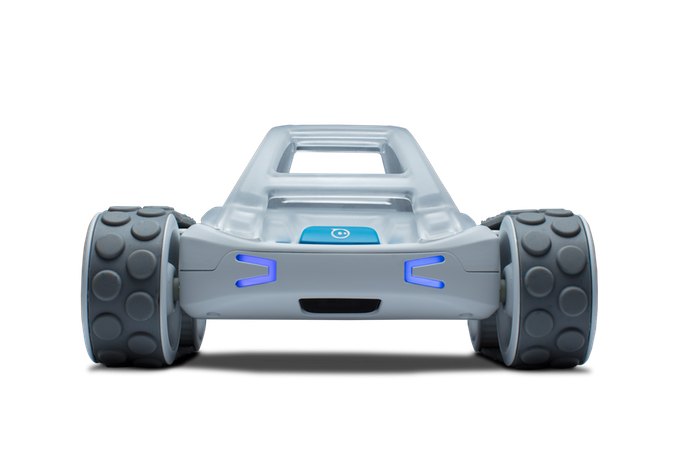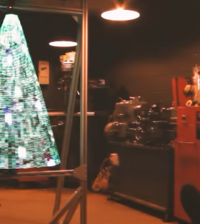- How to Adjust X and Y Axis Scale in Arduino Serial Plotter (No Extra Software Needed)Posted 7 months ago
- Elettronici Entusiasti: Inspiring Makers at Maker Faire Rome 2024Posted 7 months ago
- makeITcircular 2024 content launched – Part of Maker Faire Rome 2024Posted 9 months ago
- Application For Maker Faire Rome 2024: Deadline June 20thPosted 11 months ago
- Building a 3D Digital Clock with ArduinoPosted 1 year ago
- Creating a controller for Minecraft with realistic body movements using ArduinoPosted 1 year ago
- Snowflake with ArduinoPosted 1 year ago
- Holographic Christmas TreePosted 1 year ago
- Segstick: Build Your Own Self-Balancing Vehicle in Just 2 Days with ArduinoPosted 1 year ago
- ZSWatch: An Open-Source Smartwatch Project Based on the Zephyr Operating SystemPosted 1 year ago
Sphero RVR Hackable Robot Tank Hits Kickstarter

Sphero, a Colorado-based robotics company is out with a new DIY robotics platform. Called RVR, the robot looks a lot like an RC car, only it’s infinitely hackable and designed to entice coders of all levels to come up with imaginative use cases, a departure in a crowded field of STEAM products aimed solely at beginners.
For a US $199 Kickstarter pledge, this looks like a very solid little robot, carefully thought-out and designed to be rugged and durable. It comes with an ambient light sensor, RGB color sensor, 9-axis IMU, IR sensors, magnetic encoders for the wheels, and a bunch of LEDs. The obvious thing that RVR is missing is a camera, but that’s probably because it’s designed to be hardware expandable, with integrated power and data ports that make it easy to add a Raspberry Pi or Arduino or other sensors or hardware.
Sphero already has its own ‘Edu app’ coding ecosystem in place that can grow with your skills, starting with a graphical interface and then moving on to a Blockly-looking interface that gives you more options while still handling much of the tricky bits. Beyond that, you can program through various languages, including Java and Python.
Sphero RVR (pronounced “rover”) launched on Kickstarter this week to great interest, surpassing its $150,000 goal in less than 24 hours.















